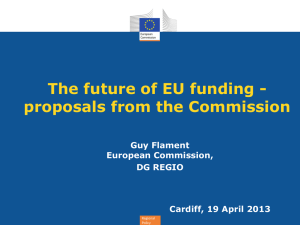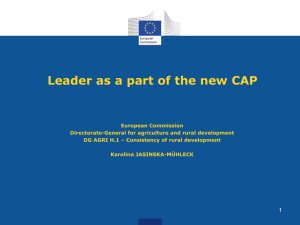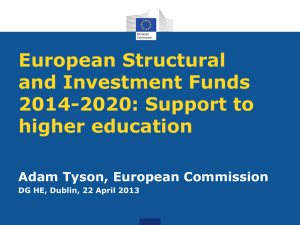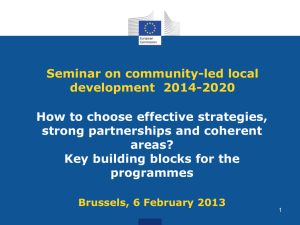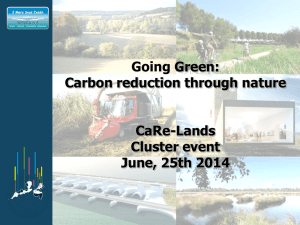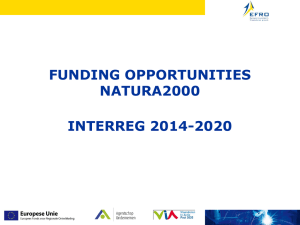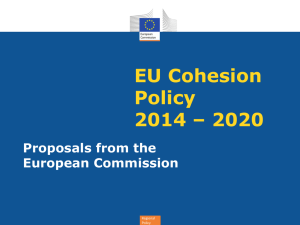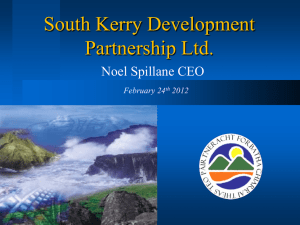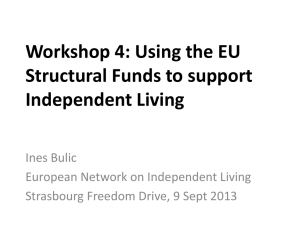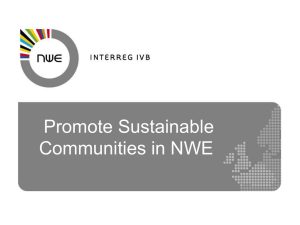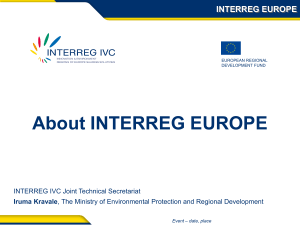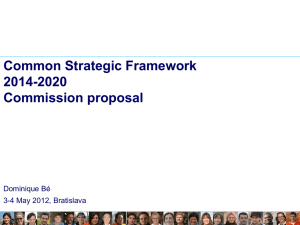Overview of European Funding - Norfolk County
advertisement
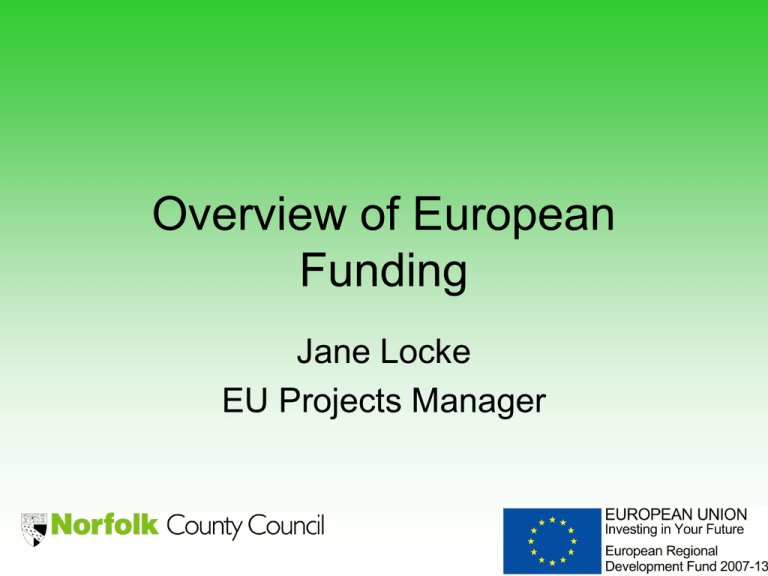
Overview of European Funding Jane Locke EU Projects Manager Europe 2020 • New programme period 2014-20 • Smart, sustainable, inclusive economic growth • Previous programmes about economic equality across Europe - cohesion • New programme will be about promoting European economies as competitors on a world stage - growth EU Programmes • National programmes – Structural (ERDF and ESF) and rural (EAFRD) • Cross border – FCE and 2 Seas • Transnational – North Sea and North West Europe • Europe-wide – Horizon2020, Erasmus + etc National £40M ERDF £40M ESF £13M EAFRD £250M FCE £139m 2 SEAS £115M North Sea £279M NWE RDPE LEADER Programme likely to be £10M? 4 Investment Priorities Thematic Objective Research & innovation SIF 2 Seas FCE North Sea North West Europe Interreg Europe Access to ICT Competitiveness of SMEs Promoting a low carbon economy Promoting climate change adaption Protecting the environment Promoting social inclusion and combating poverty Investing in education skills and lifelong learning Promoting sustainable transport Promoting employment and supporting labour mobility EUSIF – Priorities and Funding £81 Million ESF/ERDF to be divided between priority themes: • • • • • • Education and skills - £20M SME competitiveness - £16M Innovation – £11M Social Inclusion - £9M Low Carbon Economy - £8M Employment and labour mobility - £7M £6M will be spent on these themes through a Community Led Local Development approach in urban and rural areas EU SIF – Priorities and Funding £13M EAFRD aimed at 4 priorities in rural areas: • Building knowledge and skills in rural areas; • Funding new and developing non-agricultural, micro, small and medium sized rural business; • Funding small scale renewable and broadband Investments in rural areas; and • Support for tourism activities in rural areas. INTERREG European Territorial Cooperation • Maps INTERREG European Territorial Cooperation RDPE Programme • Successfully completing the Leader programme • Roll out Leader approach to 2 new local action groups in Norfolk • Using new flexibility to add ERDF and ESF funds to rural funds for holistic approach • Using new flexibility to use Leader approach in Norwich and Great Yarmouth Role of Economic Development • Able to help with: – Identifying best funding opportunity – Help with identifying project partners internally and externally – Provide access to dedicated facilitators – Assistance to draft applications – Help to set up and run a project • Meanwhile – working on compliance systems across council Contacts • • • • • • Carolyn Reid – Interreg FCE Karen Gibson –ETC Programmes (Interreg) Jane Locke – National Programmes Eliska Cheeseman – Rural Programmes Eve Cronin – Skills Programmes Karen Bailey – ERDF Facilitator
